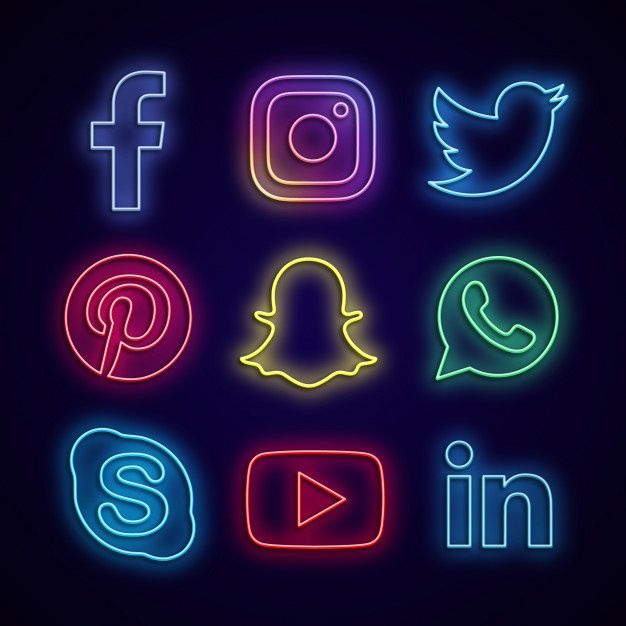Through the course of our lives, we are subject to the influence of people around us. In our early days our parents shape our character and behavior, even our religious outlook. In a Hadith we are told that, “Every child is born on the natural way of Islam and then his parents make him Jewish, Christian or Magian.” (Bukhari). Then at school, certain charismatic teachers might impact and influence our lives in a particular direction. Later it is the circle of friends that take on that role. “A man follows the religion of his friend; so each one should reflect who he takes as his friend.” (Abu Dawood)
Besides the influence of people around us, we get molded by the media we come into contact with. We form opinions based on the books or newspapers we read. We argue politics with opinions influenced by what we hear on the radio. With the advent of the television the influence was now both audio and visual. This meant a greater impact on our minds as there was no need to use our imagination to put a picture to the words.
Today we are at the point where social media is accessed by just over 50% of the world’s population. That’s a phenomenal exposure and influence by any standards. In 2020, over 4.2 billion people were using social media or around 55% of the world’s population.
Influence is of two types, good and bad.
The good influence has the power to transform nations. Islam spread through the influence of people. The Prophet sallallahu alaihi wa sallam sent Muaz ibn Jabal radhiallahu anhu to Yemen to call the people to Islam. Through his efforts, Yemen became the departure point for scholars and merchants who introduced Islam to many parts of the world such as Madagascar, parts of south East Asia and elsewhere.
Traveling Sufis played a huge role in bringing Islam to places like Central Asia where Abul Hassan al Kalamaati and Abul Hassan al Usbaanikaati did tremendous work in the 10th century. Sufism also played a leading role in bringing the people of Kashmir to Islam.
Traders also spread Islam where they went. The lands that came under Muslim rule after the early conquests included some of the most important trade routes such as the Silk Road, commercial centres like Damascus, and ports like Aden. Muslims also took over the spice trade across the Indian Ocean. Arab and Persian traders are credited with establishing Islam on the Malabar Coast of India.
Ulama who took up the Jihad and fight for survival against the Dutch invaders in Indonesia were brought as political prisoners to the Cape in present day South Africa, and by 1850 their influence meant that Muslims were 40% of Cape Town’s population.
The conversion of social, political and personal influencers to Islam played an important role in drawing their followers or admirers to the religion. Influencers is the modern term for influential people especially linked to social media. An example of an influential person spreading Islam is Sa’d ibn Muaz radhiallahu anhu, one of the chiefs of the Banu Aws tribe in Madinah Munawwarah. When he informed his people that he had accepted Islam, his whole tribe had accepted the religion by nightfall. This in turn laid the platform for Madinah Munawwarah becoming the base for Muslims eventually.
The Prophet sallallahu alaihi wa sallam sent letters to the rulers in the vicinity of Arabia implicitly acknowledging their role as social influencers, and inviting the and through them, their followers to Islam. The leaders of Byzantium, Abyssinia, Persia, and Alexandria among others were contacted. One of the reasons for engaging leaders is that the conversion of an influential political leader to Islam was an important milestone. The Prophet sallallahu alaihi wa sallam met the leaders of the community in Taif and Makkah Mukarramah.
The second type of influence is the bad influence.
The Noble Quran states, “So do not let one turn you away from it who does not believe in it and follows his desire, for you then would perish.” (20:16) This verse lists two grave consequences of the bad influence of people who become slaves to their material desires to the detriment of their purpose in life:
- The danger to one’s faith. One has to be extremely careful who we follow on social media, and obviously other platforms as well, regarding the rulings of Islam. There is a phenomenon on social media, as an example of the danger to one’s beliefs, where a number of so-called Hujabi bloggers (ladies who post content while being dressed in scarves) have changed their views on Hijab, or revealed their adverse opinions on Hijab or even stopped wearing it completely. This after spending time building a following with the Hijab as a trademark. Followers tend to continue following the blog for advice that the ex Hijabi blogger is still offering on looks, fashion, etc. but is that sort of influence worth the risk?
As a teacher, I am acutely aware of the influence we can exert on young minds. On a micro level we are all influencers. Are we willing to take the chance of potentially being influenced and our beliefs corrupted? When one such blogger publicly disowned the Hijab in 2019, her image amassed 97,000 likes and 11,000 comments within five hours of being posted.
With regards to gaining knowledge of Islamic aspects, the social media platform can be a dangerous and confusing place. While there are outstanding Islamic scholars on the net, there are others who might present their arguments in a compelling and attractive manner, yet lack the skills and knowledge to truly guide. One’s faith can be at risk, let alone this being an ideal breeding ground for extremism. Issues of belief can become confusing and doubt starts to creep in if we listen to so-called scholars pronounce on Islamic matters.
One of the qualities that will land people in Hell is having doubt in the fundamental beliefs of Islam. (Noble Quran 50:24-25)
- The second danger is falling prey to the cult of commercialism and becoming a slave to material desires. The Noble Quran warns against becoming trapped under the influence of those who follow their desires (20:16). An overwhelming percentage of the social media influencers are in the fields of beauty, fashion and the latest gadgets, all portraying a glamour of life that you are missing out on.
If you think back to the influences that might have motivated those who went through their youth in the 80’s and 90’s, you will realize that the current influencer marketing is the classic celebrity endorsement of a lifestyle, wanting to be like your movie or TV celebrity, but placed in a contemporary, modern content-driven market.
Influencers are people with refined personal brands who have trusted, enthusiastic audiences. They can be traditional celebrities or relatively ordinary people who have managed to amass large amounts of faithful followers on social media. So the dynamics is different from the past but the essence is the same.
The modern social media influencer has the power to affect the purchasing decisions of others because of his or her authority, knowledge, position or relationship with his/her audience.
To understand the impact of social media, one merely needs to look at some of the statistics:
- 4,2 billion people use social media, or just over half of the world, and this is projected to grow.
- On average, internet users spend 144 minutes a day on social media and messaging apps.
- There are 4,66 billion active internet users worldwide or almost 60% of the global population.
- Streaming company, Netflix, spent $17,3 billion on content production in 2020. Investment of such large amounts points to a definite influence. Netflix’s strategy is becoming increasingly clear – an agenda to push the limits in offering ever more explicit content and misleading ideologies.
The global reach of social media gives us a glimpse into how Dajjal will be able to operate. He will be the ultimate influencer, and a culture of influence will surround him. If we are falling for the deception of the smaller deceivers now, what will the situation be when the Prophet sallallahu alaihi wa sallam describes Dajjal’s influence as the greatest test humanity will face from the beginning to the end of time. (Muslim)
Dajjal will have some powers which mimic the miracles that the Prophets performed:
- High speed travel like Prophet Sulaiman alaihis salaam,
- Medicine will be at its peak, mimicking the healing miracles of Prophet Esa alaihis salaam,
- Rivers will be subjugated to him, and water sources and irrigation will be under his control, replicating the miracles of Prophet Musa alaihis salaam and water,
- He will have control of the fruit and resources of the world.
The Noble Quran vividly describes the regret that followers of people of bad influence will have on the Day of Judgment, “And the weak will say to those who were arrogant, “Indeed, we were your followers, so can you us in any way against the punishment of Allah?” The influential people will reply that they are all in it together.
Allah Ta’ala recounts the tragic conversation that will take place on the Day of Judgement between the followers and the influencers: “And if you could but see the wrongdoers, when they are made to stand before their Lord, blaming one another! Those deemed to be weak will say to those who were proud (the ones who influenced them), “Had it not been for you, we would have been believers!” The proud ones (influencers) will say to those deemed weak, “Did we turn you away from the guidance after it had come to you!? Rather, you yourselves were guilty.” And those deemed weak will say to those who had been proud, “Rather, it was your night-and- day scheming to prod us to be ungrateful to Allah and set up other gods besides Him.” But they will all keep their regret to themselves when they see the punishment.” (Noble Quran 34:31-33)
Some points to keep in mind when following influencers:
- Ensure that you get guidance on Islamic matters from your local Imam and Ulama. Only follow a scholar on social media if you actually know his background. People tend to write off their local Ulama as boring when compared to celebrity scholars. An interesting point is that the saviour of the Muslims at the time of Dajjal will be the Mahdi, but prior to the point of him gaining the capability of leading the Muslim world it would appear that he will be largely unknown. “The Mahdi will be from the family of the Prophet sallallahu alaihi wa sallam. Allah Ta’ala will make him capable in one night.” (Ibn Majah)
Ibn Kathir rahimahullah mentions that Allah Ta’ala will guide him inspire him and will grant him blessings which he did not have prior to this. After this point he will be appointed the Khalifah of the Muslims. So don’t think that because a scholar has no public popularity that he cannot guide you to Paradise. This is a deep fake plan of the devil to disconnect people from the scholars.
- Always be alert to the fact that what is portrayed on social media is in all probability not the reality. While the posts might seem spontaneous, they are actually well planned and manipulated.
- A popular female Japanese biker was unmasked as a 50 year old man who used a face-changing, gender swapping app to become an influencer on Twitter. He used digitally altered images to create an illusionary world. Dajjal’s whole persona will be built on deception to such a degree that people in an age of atheism and seeking spirituality will surround him as a prophet and god.
- Media’s false front is aptly highlighted with the case of Robin Williams. He was a famous actor and regarded as one of the best in his field. He was known for acting in films of substance which had serious life lessons. But behind the scenes he was battling drug and alcohol addiction, along with depression. In 2014 he committed suicide by hanging.
- Kids aspire to a Youtuber of Tiktokker of note. And while it seems an endless life of perks, fame and opportunity, it is not that simple. The audience only sees the perfect part at the end and not the work going on behind it. A vlogger with 1,4 million followers committed suicide aged 18. In June 2020, another Tik Tok star with 1,1 million followers committed suicide aged 16. This was at the height of their surface popularity
- Social media promotes an image of an ideal culture. Consumerism heads it and people keep buying the latest to keep up with trends. People buy goods and services to publicly display economic power, buying for fun and pleasure and without a plan or budget. Celebrity endorsement of products and brands creates a craving in their followers to have the same. Influencer marketing is projected to be worth $13,8 billion in 2021, while global spending on TV advertising in 2020 was still huge at $191 billion.
The Hadith tells us that if a man has a valley of gold, he will crave for another until only the grave puts an end to this fever. (Ahmed, Bukhari)
- The Hadith informs us that, “Every Muslim will be forgiven except those who sin in public.” (Bukhari) A person sins and then posts his sins on social media for all to see. Social media is a track record that’s extremely difficult to erase. Be wary of what you post. And on the Day of Judgment Angels will come as witnesses to our sins we have not asked forgiveness for. “And everybody will come, along with one (angel) to drive (him to the field of reckoning) and one (angel) to testify (about his deeds).” (Noble Quran 50:21)
To top it all, we become complicit in the Haraam by viewing, following and liking other people’s sins.
Use social media but don’t get drawn into its murky world. Guard your faith with extreme jealousy and you will gain the sweetness in it. (Bukhari)











COMMENTS